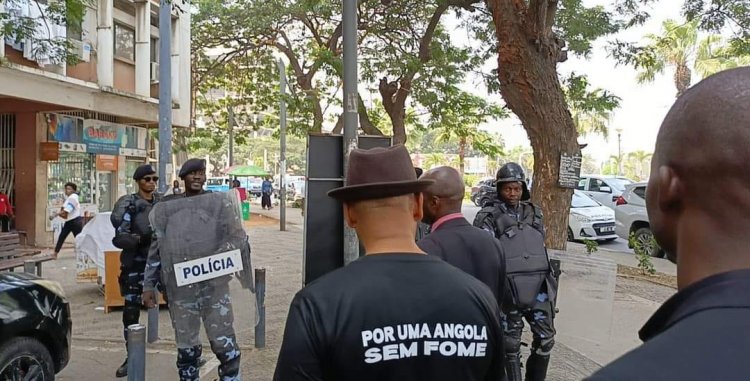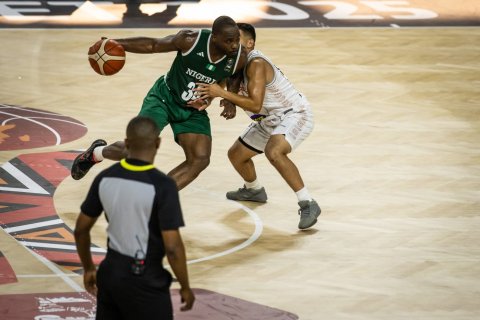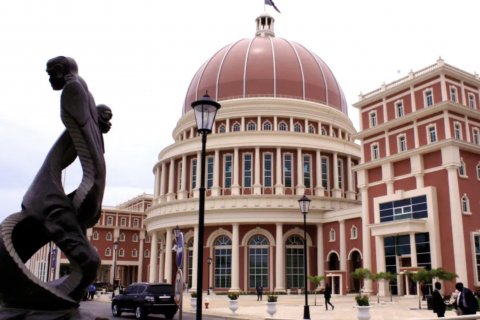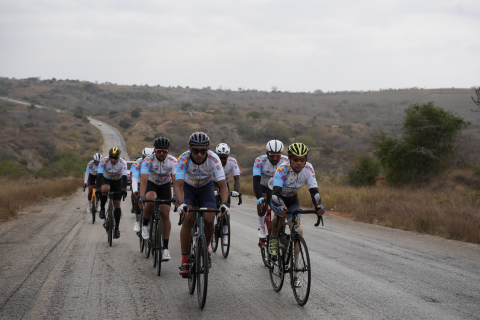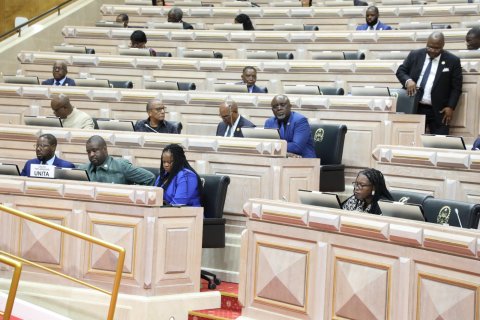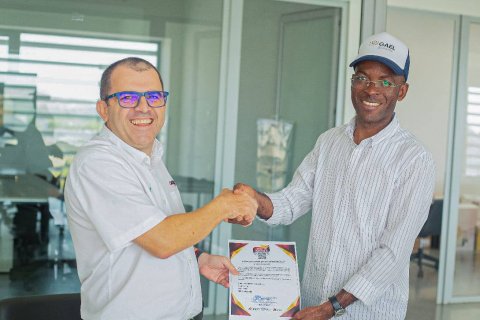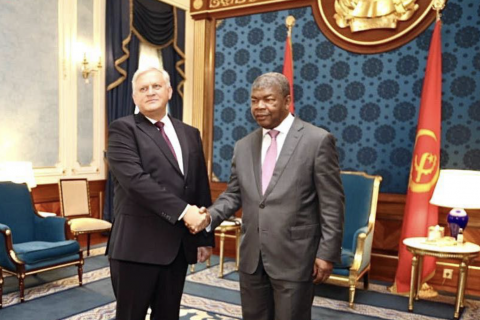Previously, the leaders of UNITA, Democratic Bloc (BD) and political project PRA-JA Servir Angola, as well as Francisco Viana, a member of civil society, had already been prevented from delivering their "communication about the real country" to the Supreme Court.
Upon arrival at 1.º de Maio (Largo da Independência), which has in its center the statue of the country's first President, Agostinho Neto, Adalberto Costa Júnior, Filomeno Vieira Lopes, Abel Chivukuvuku and Francisco Viana found a police cordon and were informed that they couldn't pass.
Visibly irritated, Francisco Viana, who was a member of the MPLA and is currently one of the deputy coordinators of the United Patriotic Front, an opposition platform, tried to argue with the police: "We are defending your children, your grandchildren", and shouted: "Are we going to be like this for another 50 years? Why? What have we done?".
The leader and businessman also appealed to "Portugal's leaders" to "help fight the dictatorship".
"President Marcelo Rebelo de Sousa, you were able to walk here alone, President Celito, but we can't, why? You circulate in Angola and the Angolan doesn't circulate and, even so, you are receiving the representatives of the tyrants", he was indignant, showing his deputy card and questioning why he had been stopped by the police.
"I said I wasn't going to pass and that was that," he said.
"We arrived here and are prevented from traveling on 1.º de Maio", lamented the president of BD, Filomeno Vieira Lopes.
"Even on the road, it's ridiculous", joked Abel Chivukuvuku, from PRA-JA, while the delegation tried to move further away from the center of the square.
The presence of the leaders of the United Patriotic Front (FPU) attracted people, including two young people with a sign that read: "For an Angola with democracy, justice, local authorities, without hunger".
"We are talking to people on the street. According to our Constitution, it is normal for a citizen to talk to another citizen", Filomeno Viera Lopes told Lusa, stressing that "no citizen should be prevented from circulating".
"Political freedom means being able to talk to our citizens, express our ideas, this shows that we are not in a context of political freedom in our country", stressed the BD leader, considering the impediment "sad and shameful" and asking for "the contribution of everyone "to overcome these barriers".
"We are living in a police state, militarized, we are in an autocracy, this is proof that we are in a repressive state, we have to have the courage to oppose this", urged Filomeno Vieira Lopes.
The coordinator of the FPU and president of UNITA, Adalberto Costa Júnior, followed a street adjacent to the square and took the opportunity to contact people in kiosks, florists and near companies, where he was greeted by a few dozen young people to whom he distributed leaflets.
Adalberto Costa Júnior also handed out leaflets to bikers and motorists who stopped to receive the "communication" from the hands of the UNITA leader, who also took some 'selfies' with passersby, while displaying the words on his t-shirt, the "uniform" in which opposition leaders took to the streets this Thursday: "For the local authorities/For an Angola without hunger".
"Communication about the real country" addresses the "subversion of the rule of law" in Angola, the regime's "deviant" behavior, violations of freedoms, rights and guarantees, the "hijacking" of media and the economic crisis, among other aspects, demanding reforms in the country.
The FPU document was presented on Wednesday, at a press conference, with those responsible for the bloc announcing that they would send it to state institutions this Thursday.
The caravan made up of FPU leaders delivered, through a window, the first copy of the document to the Protocol of the Presidency of the Republic, having then been prevented by elements of the presidential guard from sending the document to the Supreme Court.
The same document was also delivered to the headquarters of the Episcopal Conference of Angola and São Tomé (CEAST), where the opposition caravan was received by a priest.

